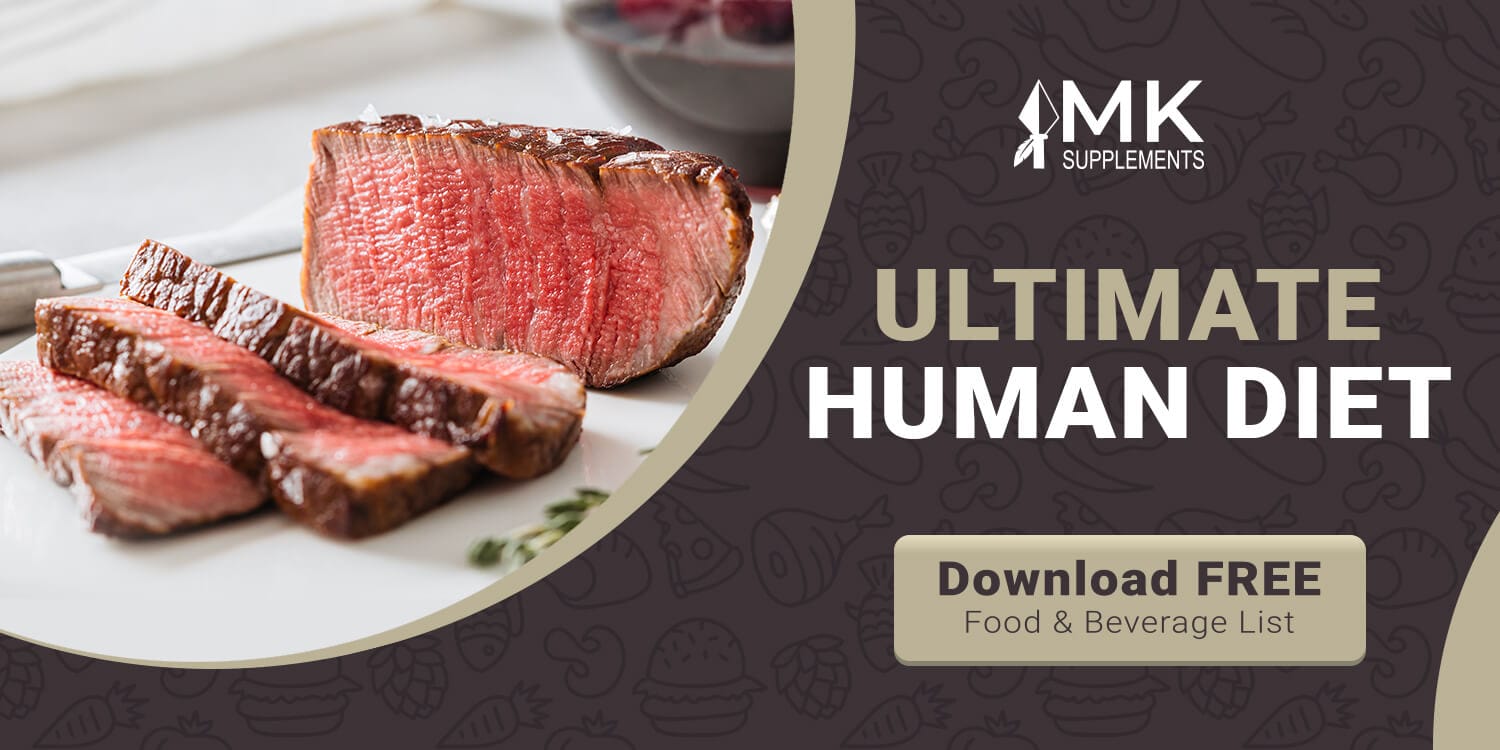- 1. Insulin Resistance
- 2. Metabolic Inflexibility
- 3. Abnormal Sex Hormone Levels
- 4. Poor Sleep Habits
- 5. Chronic Stress
- 6. Chronic Caloric Deficit
- 7. Liquid Calories
- 8. Eating Out
- 9. Artificial Junk Light
- 10. Thyroid Issues
- 11. Cardio Instead of HIIT and Resistance Training
- 12. Diet Sodas
- 13. Seed Oils (aka Vegetable Oils)
- 14. High-Fructose Corn Syrup
According to the CDC, over 70% of Americans are overweight or obese, leading to an increased risk of metabolic diseases such as Alzheimer’s, diabetes, cancer, cardiovascular disease and autoimmune conditions.
Of course, most people understand the severe health consequences of obesity. But losing weight can be difficult, and many people struggle to shed their excess body fat despite seemingly “doing everything right.”
That’s because losing weight isn’t always as simple as cutting calories and exercising more.
14 Reasons Why You’re Not Losing Weight
This article explains the key factors that prevent sustained weight loss and lays out the steps you can take to dramatically improve your chances of reaching your ideal weight. Diet plays a key role in weight management, so I encourage you to also read my article about the best diets for weight loss.
1. Insulin Resistance
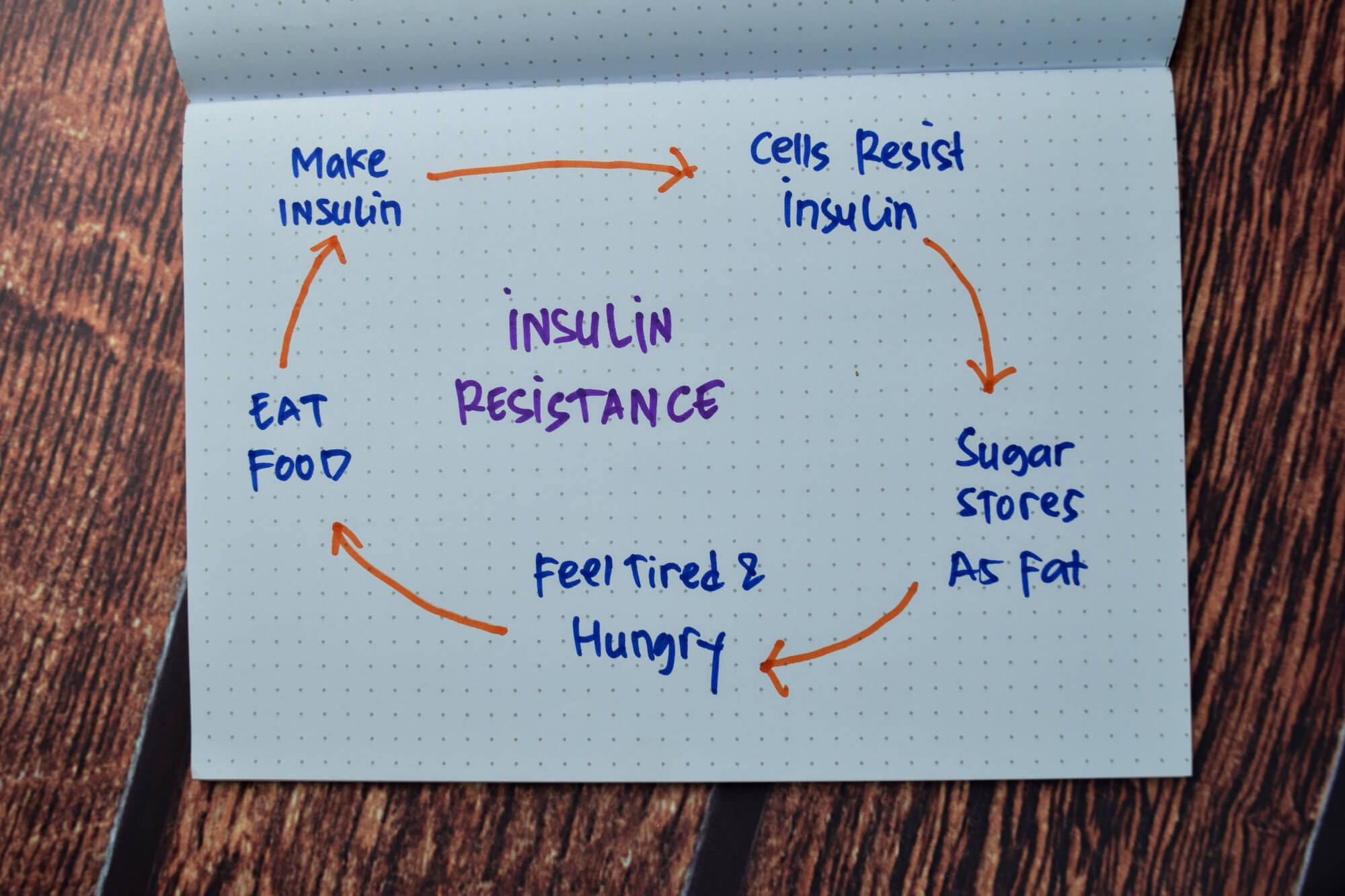
When you consume carbohydrates in the form of sugar or starches, your body converts those carbs into glucose, causing a rise in blood sugar levels. In response to elevated blood sugar levels, your pancreas releases insulin, which picks up the glucose and transports it to your muscles, brain and other tissue, where the mitochondria (your cells’ power plants) use it for energy. Any excess glucose your cells don’t use for energy gets converted by your liver into fatty acids, which are then stored in adipose tissue (fat).
Consuming a diet that’s high in processed carbs leads to frequent spikes in blood sugar, which in turn causes your pancreas to continuously produce insulin. But if your supply of glucose is chronically higher than your body’s demand for it, your cells will become less sensitive to insulin and start ignoring its signal. This results in both elevated blood sugar and elevated insulin levels, leading to a higher conversion rate of glucose to fat.
In other words, it puts your body is constant fat-storage mode, which is precisely the opposite of what you want when you’re trying to lose weight. Over time, this can lead to Type-2 diabetes. But insulin resistance is not limited to people with diabetes, and excess sugar consumption isn’t the only cause of it.
Specifically, there is evidence that consuming too much of certain types of food — including highly-processed foods like grains and industrial seed oils that are high in inflammatory polyunsaturated fatty acids (PUFAs), such as linoleic acid — causes oxidative stress and inflammation (on a cellular level) that can lead to insulin resistance. (Oxidative stress damages cells and negatively impacts the signaling pathways insulin relies on to transport glucose through cell membranes.)
As we’ll discuss below, linoleic acid also increases the production of endogenous cannabinoids that make us eat more.
That’s why it’s important to avoid foods that are high in linoleic acid (a polyunsaturated fatty acid), such as canola oil, safflower oil, fried foods and sugar-free snacks. These foods are often recommended to people who are trying to lose weight because they have little or no sugar, but the fact that they contain PUFAs may be equally detrimental to your weight loss efforts.
To determine if insulin resistance is negatively impacting your ability to lose weight, I recommend checking your blood levels of fasting insulin, c-reactive protein (CRP) and glycated hemoglobin (A1c). This can be accomplished by consulting your primary care physician, who can order a comprehensive blood panel for you. As a general rule, you want your fasting insulin to be below 3 uIU/ml, your CRP below 1 mg/L, and your A1c below 5.7%.
To learn more about these and the other blood markers I regularly test for, check out my article about what it means to be metabolically healthy.
2. Metabolic Inflexibility
The body’s ability to convert glucose (sugar) into fatty acids is an ancient survival mechanism that allowed early humans to store energy in the form of body fat for use when food was scarce or unavailable. But it only makes sense if the body can convert the stored fat back into energy and use it in the absence of glucose. Otherwise, fat will just keep building up over time.
The ability to switch back and forth between using glucose and fat (in the form of ketones or fatty acids) as fuel is called metabolic flexibility, and it’s something we’re all born with. Unfortunately, most adults and even many kids lose their metabolic flexibility due to chronic overconsumption of energy-dense foods (mainly carbohydrates).
The body only burns fat for fuel when your insulin levels are low (i.e., in the absence of dietary carbohydrates) or when you maintain a significant caloric deficit. So if your diet consists primarily of carbs, and you’re not on a starvation diet, you’ll never enter that fat-burning mode (which is also known as ketosis).
If your goal is to lose weight without starving yourself, your body must be capable and efficient at burning its own fat for energy.
The best way to become metabolically flexible is to follow a low-carb diet, such as the Paleolithic ketogenic diet. You can also implement intermittent fasting.
If you’re having trouble achieving metabolic flexibility, Lumen is a breath analyzer that can help you by using the information from your daily breath measurements to recommend dietary changes. For example, Lumen may recommend incorporating low-carb days into your diet, or postponing your carb intake until later in the day, with the goal of making your body more efficient at burning fat for fuel. At about $300 it’s not cheap, but the insights it provides can potentially speed up your weight loss.
Once you’re metabolically flexible, skipping a meal or working out while fasting can positively impact your weight loss efforts without making you feel hungry or leaving you with low energy levels.
3. Abnormal Sex Hormone Levels

The sex hormones testosterone and estrogen play important roles in fat metabolism for both men and women, thus directly impacting weight loss efforts.
For example, estrogen promotes fat storage in breast tissue and the areas around your thighs and buttocks. So if you have abnormally high estrogen levels, you’ll likely have trouble losing weight in those areas. On the flip side, low levels of estrogen can cause a reduction of subcutaneous fat tissue in those areas, but can actually increase visceral fat around the organs and abdomen. That’s why post-menopausal women, who often suffer from low estrogen levels, find it difficult to lose belly fat.
Estrogen’s counterpart is testosterone, which is vital for healthy fat metabolism because it influences the expression of regulatory proteins involved in glycolysis (the breakdown of glucose), glycogen synthesis, and lipid and cholesterol metabolism.
Coincidentally, most obese men suffer from low testosterone levels, and studies have shown that increasing testosterone levels facilitates sustained weight loss by improving insulin sensitivity and normalizing the metabolic pathways discussed in the previous paragraph. As a result, some scientists have even called testosterone a “fat-reducing” hormone.
It’s important to note that testosterone is important for both men and women. While it’s thought of as the male sex hormone, testosterone is also involved in the fat metabolism of women.
Unfortunately, there is significantly less research to help us understand how exactly testosterone impacts female fat metabolism. Some studies have found a correlation between high testosterone levels and adipose tissue insulin resistance, while others have noticed a negative correlation between blood testosterone levels and belly fat. Either way, I recommend getting your testosterone levels checked by your doctor to make sure they’re not too low or too high, since either state could be a factor in your inability to lose weight.
Lifestyle factors that can contribute to abnormal sex hormone levels include:
- Poor sleep hygiene.
- Lack of exercise.
- Nutrient deficiencies.
- Lack of dietary fat and cholesterol.
- Lack of sun exposure.
- Chronic exposure to xenoestrogens.
Xenoestrogens are an important but often overlooked factor in weight loss. They’re compounds that mimic estrogen and attach themselves to the body’s estrogen receptors. Considering that estrogen is a fat-storage hormone, xenoestrogens can cause your cells to go into fat storage mode, making it more difficult for you to lose weight
Unfortunately, xenoestrogens are everywhere in modern society. They’re in skin care products, many plant-based foods, plastic food storage containers and even tap water. If you want to learn more, check out my article about how xenoestrogens can make you fat and infertile and watch this YouTube video about products that don’t contain xenoestrogens.
The key takeaway is that it’s important to periodically check your hormone levels to ensure they’re within a healthy range. As I discussed in my article on how to slow the aging process, you might even want to consider hormone replacement therapy if you’re unable to restore healthy hormone levels through lifestyle changes alone.
4. Poor Sleep Habits
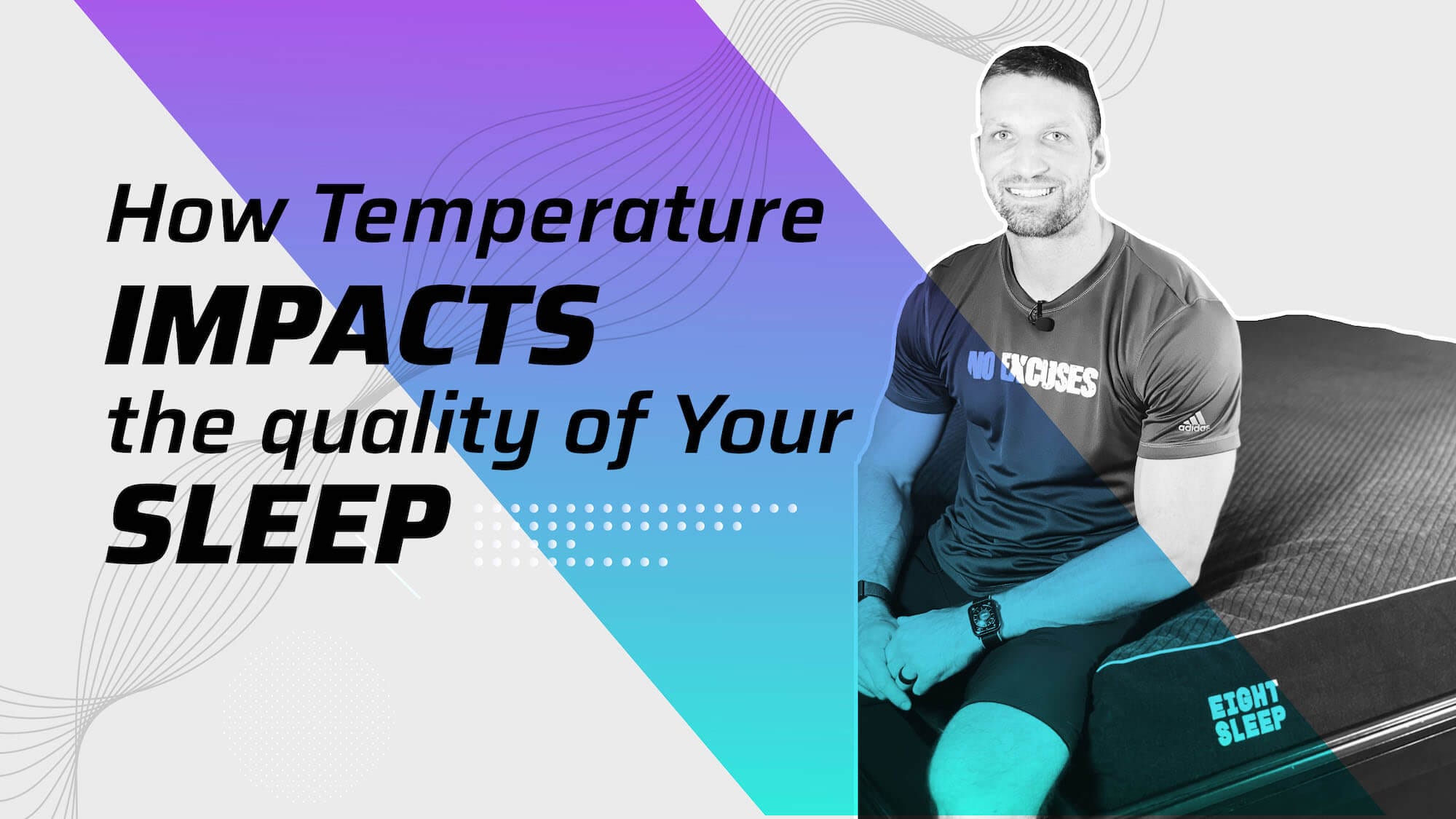
Failing to get enough high-quality sleep will complicate your weight loss efforts for several reasons, including disrupted hormone levels, altered glucose metabolism, decreased leptin levels, increased ghrelin levels and the increased likelihood of making poor decisions that comes with being mentally and physically tired.
Leptin is a hormone that signals when you’re full, while ghrelin causes to you feel hungry.
REM sleep is crucial for maintaining healthy testosterone levels, and low testosterone levels can make it difficult to lose weight. REM sleep occurs predominantly during the second half of the night, so if you cut your sleep short, you probably won’t get enough of it (thus preventing your body from producing adequate amounts of testosterone).
Additionally, you’re more likely to make poor dietary decisions when you’re sleep-deprived, because you might be trying to make up for low energy levels by consuming energy-dense junk foods. I can tell you from personal experience that a lack of sleep makes me more likely to overeat (and to consume the wrong types of food).
For these reasons, I highly recommend doing everything possible to get a good night’s rest. While I encourage you to check out my sleep resources, here are a few tips to help you get started. You can learn more about the rationale behind each of these recommendations in my article on how to sleep better and fall asleep quicker.
- Maintain a regular bed and wake-up time, which supports your circadian rhythm and directly influences your hormone levels.
- Avoid alcohol, caffeine, blue light and electronic device use before bedtime. (Note that caffeine can stay in your system for up to 10 hours, which can negatively impact your sleep.)
- Keep your bedroom cold and dark (some people even use a bed cooling solution).
- Journal or write down what’s on your mind before going to bed, to keep those thoughts from occupying your brain while you’re trying to fall asleep.
- Leave three or four hours between your last meal and your bedtime.
- Consider using an accurate sleep tracker to better understand how you can improve your sleep.
On a side note, I don’t recommend cutting your sleep short so that you can hit the gym. Many people do this, but it’s like jumping over dollars to pick up pennies, as sleep deprivation has a more significant negative impact on your weight loss efforts (and your overall health) than the positive impact of exercise.
5. Chronic Stress

Chronic stress can negatively impact weight loss efforts because we tend to eat more (junk food) when we’re stressed. After all, most junk foods trigger our brain’s pleasure center and cause the release of the “feel good” hormone dopamine.
Additionally, one of the body’s stress response mechanisms is to raise our blood sugar and insulin levels. This makes sense from an evolutionary perspective, because acute stress was usually associated with life-threatening situations like being attacked by a wild animal.
In other words, our bodies respond to stress by making extra energy available (in the form of glucose), which increases our chances of successfully fighting or fleeing a dangerous situation.
Of course, most of the stressors we experience in modern society aren’t life-threatening. But our brains don’t know this, and our bodies produce the same physiological response to stress regardless of whether we’re stuck in traffic, running late for a meeting or fighting a wooly mammoth.
This phenomenon, combined with blood sugar spikes from increased consumption of highly-processed carbohydrates, is why chronic stress can further impair your cells’ insulin sensitivity, thus making it harder to lose weight.
Check out my blog post about the tools and techniques I use to better manage stress, including cold plunging, infrared sauna bathing, breathing exercises and more.
6. Chronic Caloric Deficit

Many nutritionists and so-called weight-loss experts say the best way to lose weight is to eat less by counting calories. This is known as the “calories-in, calories-out” strategy, and it’s based on the assumption that if you consume fewer calories than you burn, you’ll lose weight because that daily calorie deficit compounds over time.
But as many studies have demonstrated and explained, it’s just not that simple.
The problem with eating fewer calories than you burn is that it leaves you feeling hungry. And hunger always wins, regardless of how mentally strong you think you are. As a result, it’s difficult to maintain a caloric deficit for extended periods.
In many cases, this strategy ultimately produces a rebound effect, causing you to eat even more than before. And unfortunately, most people rebound from a caloric deficit by consuming energy-dense junk food rather than grass-fed meat, fresh liver and pastured eggs.
So what can you do instead?
The trick to losing weight without making yourself feel miserable is to become metabolically flexible, because when your body is able to burn its own fat for energy, you can get away with consuming fewer calories from dietary sources.
In other words, when you’re metabolically flexible your body will compensate for a caloric deficit by burning fat, thus ensuring a constant supply of energy.
However, keep in mind that even when you achieve metabolic flexibility, maintaining a long-term caloric deficit can result in a weight loss plateau. That’s because your body will eventually try to hang on to some energy reserves stored in fat tissue around your body.
Read my article on metabolic flexibility to learn about the steps you can take to reach this state.
On a side note, it’s equally foolish to stop eating before you’re full — another common but misguided piece of dietary advice. We may be the only mammal on the planet with the prefrontal cortex to make such a decision, but that doesn’t mean it’s an effective strategy for losing weight. Instead, I recommend doing what all other mammals do when they don’t have weight issues: follow a species-appropriate diet and eat until you’re satisfied.
7. Liquid Calories

It’s incredibly easy to feed your body more energy than it needs by consuming liquid food like shakes, smoothies and flavored coffees.
For example, a Starbucks 16-ounce Pumpkin Spice Frappuccino has a whopping 420 calories and 65 grams of added sugar while providing zero micronutrients.
While you may think a Frappuccino is a bad example because “everyone knows” that flavored coffee beverages are unhealthy — especially in the contest of weight loss — you’d be surprised at how many either don’t recognize this fact or choose to ignore it.
For example, I used to work out with someone at my previous CrossFit gym who wanted to lose weight. His nutritionist told him that he could have one of those sugar-laden beverages per day. I was shocked that a nutritionist would suggest consuming 65 grams of liquid sugar per day as part of a weight-loss strategy.
Another example of liquid calories is sports drinks. A 28-ounce bottle of Gatorade has a whopping 48 grams of added sugars — significantly more than you need, even after a strenuous workout. If you regularly consume these beverages, you will end up with an energy surplus that your body will convert into fat.
I recommend staying away from all liquid calories because they dramatically increase your risk of maintaining an energy surplus that derails your weight loss efforts.
8. Eating Out

Most meals served in restaurants contain unhealthy ingredients, like added sugars and rancid seed oils, that can derail your weight loss efforts.
While that might sound like an obvious statement, I don’t think many people appreciate just how unhealthy most restaurant meals are.
That’s because it’s not only about what you eat, but also how the restaurant prepares the food.
For example, if you order a Caesar salad with skinless chicken breast, you might feel like you’re getting a healthy meal. Unfortunately, the dressing is almost always loaded with inflammatory seed oils and maybe even added sugar.
A similar principle applies to pan-fried foods, including eggs, veggies and meat. Restaurants often use the cheapest oils possible, including canola oil, rice bran oil and safflower oil. These seed oils are all high in inflammatory linoleic acid that can negatively impact your weight loss efforts.
When I eat out, I usually go for steak. But even for that, restaurants use seed oils to prevent the meat from sticking on the grill.
I recommend cooking your meals at home whenever possible. If you like eating out from time to time, I recommend asking the waiter if the kitchen could use butter instead of oil and checking out sites like Local Fats, which maintains a database of restaurants that use only healthy oils from animal-based sources, such as butter or tallow.
9. Artificial Junk Light (and a Lack of Sunlight)

Light significantly impacts the body’s circadian rhythm, which controls the release of certain hormones throughout the day.
For example, early-morning sunlight triggers the adrenal gland to release more cortisol, an important hormone that makes us feel energetic and ready to go. Conversely, blue light exposure from artificial sources — as opposed to the red and orange light emitted in nature at sunset — inhibits the release of melatonin, a hormone that is crucial in maintaining healthy sleep patterns.
If you’re struggling with losing weight and aren’t sleeping well, I recommend increasing your exposure to natural sunlight during the day and avoiding exposure to artificial junk light in the evening. Get outside as much as possible in the morning and during the day, and expose as much of your naked skin to the sun as possible. In the evening, consider wearing blue light-blocking glasses, like these from Bon Charge that I wear.
10. Thyroid Issues
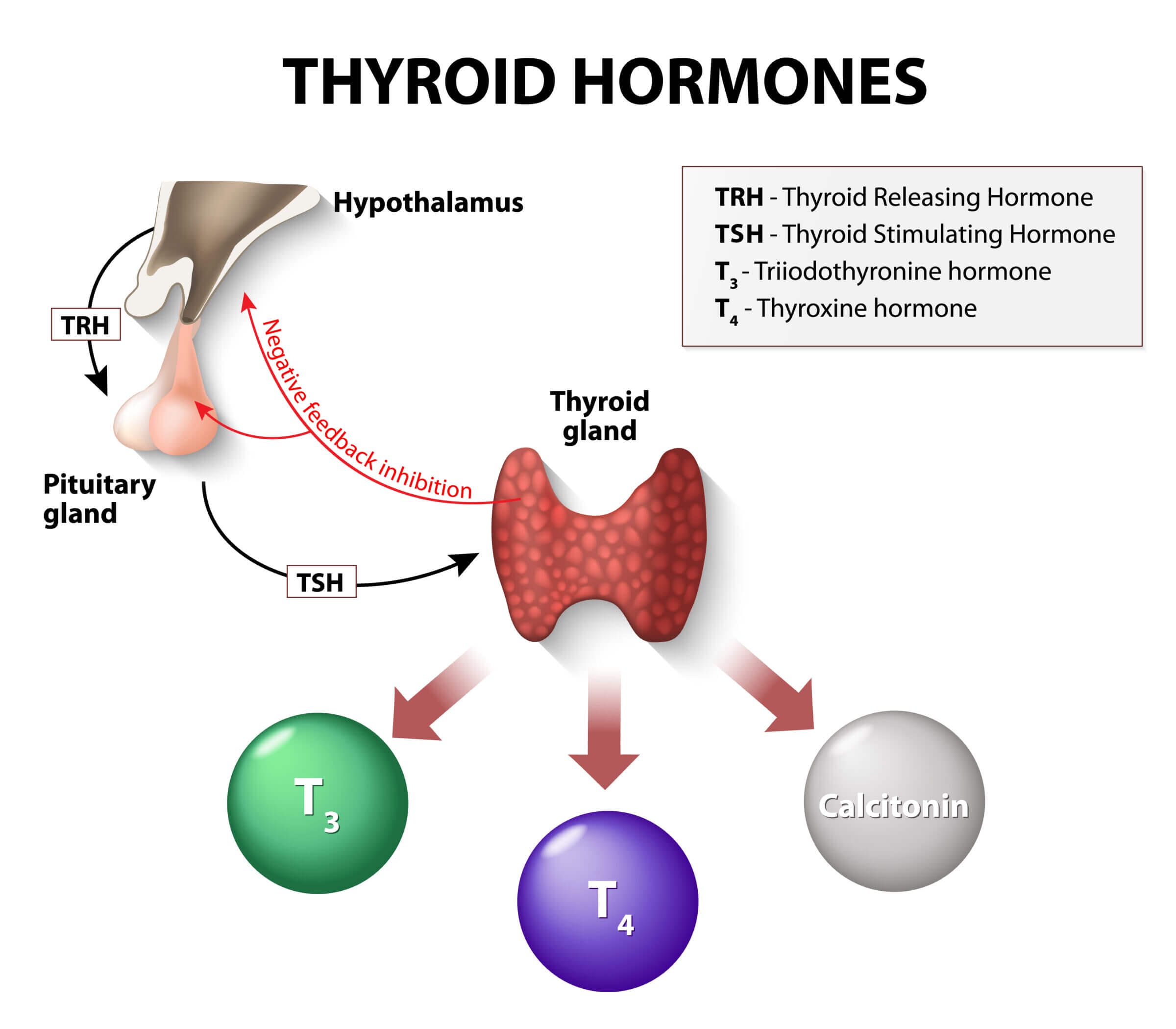
The thyroid gland produces hormones that play a vital role in the body’s metabolic rate and how it transforms the food we eat into energy. If you suffer from a medical condition that manifests in low thyroid hormone levels (hypothyroidism), you’re more likely to have a slow metabolism, which makes it more difficult to lose weight.
What many health care professionals don’t understand is that not all thyroid issues require medication if their root causes are addressed. Some of these root causes include:
- Food sensitivities.
- Nutrient deficiencies.
- Inflammation and auto-immune conditions.
- Stress.
- Low-quality sleep.
- Excess fluoride.
Mitigating the above issues is as simple as making a few lifestyle changes, including avoiding inflammatory foods (mostly plants), adding organ meats to your diet, healing your gut, managing stress, protecting your sleep and filtering your drinking water.
Check out my eight core principles for a healthy lifestyle article to learn how you can address all of these issues.
11. Cardio Instead of HIIT and Resistance Training

I’ve seen countless people trying to lose weight by jogging or by spending hours upon hours in the gym doing cardio on treadmills. The problem is that most cardio workouts are incredibly ineffective for losing weight, in comparison to other workout routines. It’s not that you can’t lose weight by jogging or running on a treadmill, it’s just that it takes more time and commitment than most people are willing to put in.
If you have a fitness tracker, just look at how many active calories you burn by jogging for 30 minutes. Depending on your weight, you may burn less than 300 calories but finish the run with achy joints. If you then eat a protein bar and wash it down with a bottle of Gatorade, you’ll have consumed more calories than you burned.
I compare traditional cardio workouts to calorie restriction diets: you can lose weight with both, but most people give up quickly and return to their old habits, thus undoing any progress they may have made.
Plus, some cardio workouts, including jogging, aren’t conducive to joint health. That’s particularly true if you carry some extra weight that your joints and connective tissue must bear.
A joint-friendly alternative to jogging is walking. I go for long walks with my dog every day and it’s a great way to burn some extra calories and expose my skin to natural sunlight (which is crucial for supporting my circadian rhythm and hormone production). Most people also find it easier to stick to a daily routine involving walking rather than running.
The only downside of walking is that it requires more time than running to burn the same amount of energy.
The more efficient way to burn calories is high-intensity interval training (HIIT) or reduced-exertion high-intensity interval training (REHIT), such as CrossFit or the CAROL bike protocol. Studies have shown that HIIT and REHIT training regimens are excellent tools for weight loss and improve your insulin sensitivity (an essential marker for weight loss).
The good thing about HIIT training is that you can make it as intense as your physical capabilities allow. In other words, anyone can do HIIT training — you just need to find a gym or a coach who can adapt the training to your current physical ability.
Another excellent way to lose weight is through strength training, which improves insulin sensitivity and helps you build muscle mass. Muscles require a lot of energy, so the more muscle tissue you have, the more energy your body needs — even without extra physical activity.
In other words, adding lean muscle tissue increases your basal metabolic rate (BMR). On the flip side, you don’t increase your BMR with cardio.
12. Diet Sodas
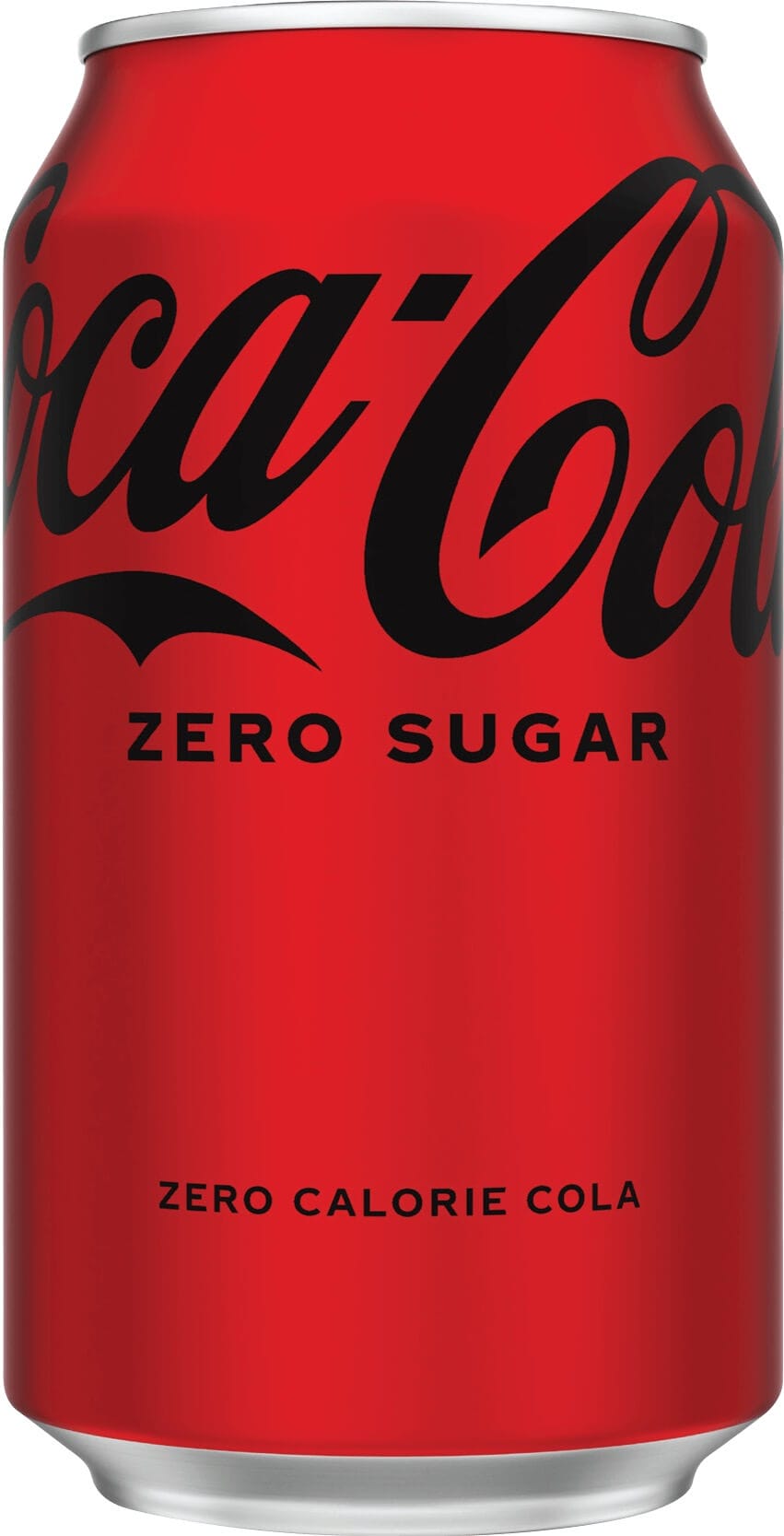
Some people argue that diet sodas are healthier than traditional sodas because they don’t cause a spike in blood glucose levels. While it’s true that beverages sweetened with non-caloric sweeteners, such as sucralose, don’t cause an immediate rise in blood sugar levels, artificial sweeteners do confuse the body in a way that can negatively impact how the pancreas responds to glucose.
In other words, non-caloric sweeteners can teach the body that sweet foods don’t require an insulin response. That’s problematic because it may negatively impact how the pancreas responds in the future to glucose from sweet foods, leading to elevated blood sugar levels.
Additionally, studies have shown that consuming artificial sweeteners alters gut bacteria, which are partially responsible for regulating blood sugar levels.
The bottom line is that if you regularly consume diet sodas and other artificially-sweetened beverages or foods, you’re negatively impacting your metabolism, gut health and weight loss efforts.
I recommend consuming water, black coffee, tea or fermented beverages (kombucha or kefir) that don’t have added sugars.
If you’d like a quick reference guide that shows you what foods and beverages to choose (and which ones to stay away from) click the Download button above to get a free copy of my printable Ultimate Human Diet cheat sheet.
13. Seed Oils (aka Vegetable Oils)

As discussed in my article comparing saturated and polyunsaturated fatty acids (PUFAs), most vegetable oils are terrible for your health. However, what many people don’t realize is that certain PUFAs (such as linoleic acid) can elevate levels of endocannabinoids 2-AG and anandamide, two cannabinoids that increase your appetite.
In other words, consuming vegetable oils can give you the munchies and promote overeating. That’s why I recommend removing all seeds oils from your diet by replacing them with saturated fats from animal-based sources, such as tallow, ghee or butter.
14. High-Fructose Corn Syrup
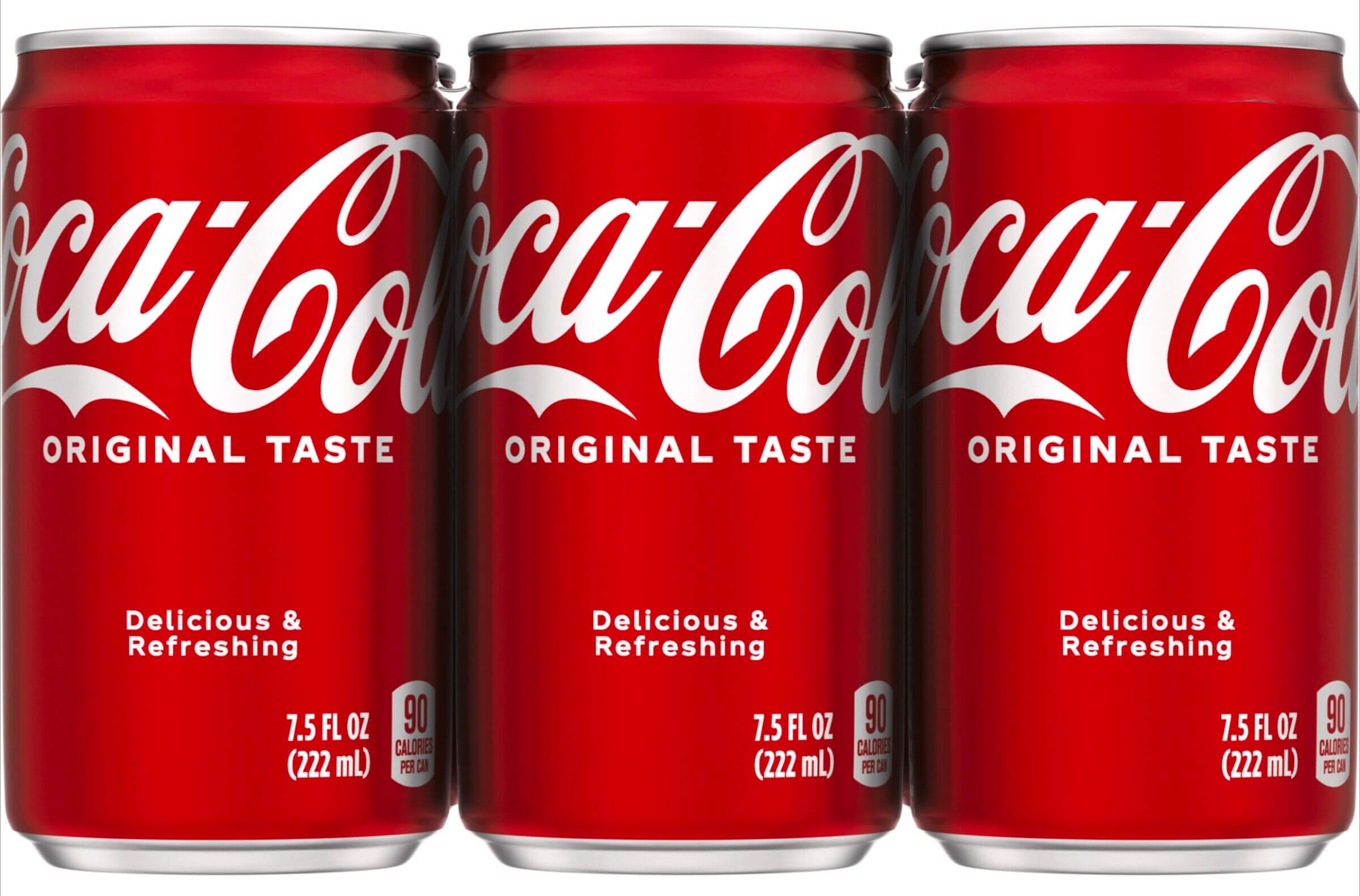
High-fructose corn syrup is one of the most widely used sweeteners in processed foods, including sodas, baked goods and candy, to name a few.
One of the many problems with high-fructose corn syrup is that it delivers significantly more calories than nutrition labels may suggest.
For example, a study published by the Federation of American Societies for Experimental Biology concluded that the high-fructose corn syrup of 10 commercial beverages that were tested contained 4 to 5 times more carbs (and thus calories) than listed on the label.
Practically speaking, that means a 7.5 ounce can of Coca-Cola doesn’t have 90 calories, but a whopping 450 calories.
The reason why high-fructose corn syrup has more calories than previously thought is because the carbohydrate analysis previously used turned out to be inadequate; the newer method used by scientists (which includes a mild acid hydrolysis) appears to lead to a much more accurate reflection of the actual carbohydrate content.
That’s likely why studies — such as one conduction by Princeton University — have discovered that high-fructose corn syrup prompts considerable more weight gain than equal amounts of table sugar.
As such, I recommend removing all products that contain high-fructose corn syrup from your diet immediately if your goal is to lose weight.
On a side note, check out this YouTube video about what happened to my body after I drank a can of coke for the first time in years.
Why Aren’t You Losing Fat in Certain Areas?

An enzyme called lipoprotein lipase (LPL), together with insulin, is heavily involved in deciding where fat is stored and how much fat is stored. The distribution of LPL in your body is often influenced by genetics.
For example, some people are more prone to store fat in their bellies while others are more prone to store it around their ankles or hips.
The unfortunate truth is that the areas with the most LPL tend to hang on to fat much longer than other areas of the body. This explains why some women may lose fat everywhere except for certain “problem” areas that stick around, no matter what they try.
Based on my discussions with metabolic scientist Dr. Bikman, I recommend living with some extra fat in certain areas (if you’re a woman) or continuing your weight loss efforts until those areas have slimmed down too.
What I don’t recommend is destroying it (i.e., through cool sculpting) or removing it (i.e., through liposuction), because chances are that the body will simply find a new location to create “emergency” fat stores.
Frequently Asked Questions
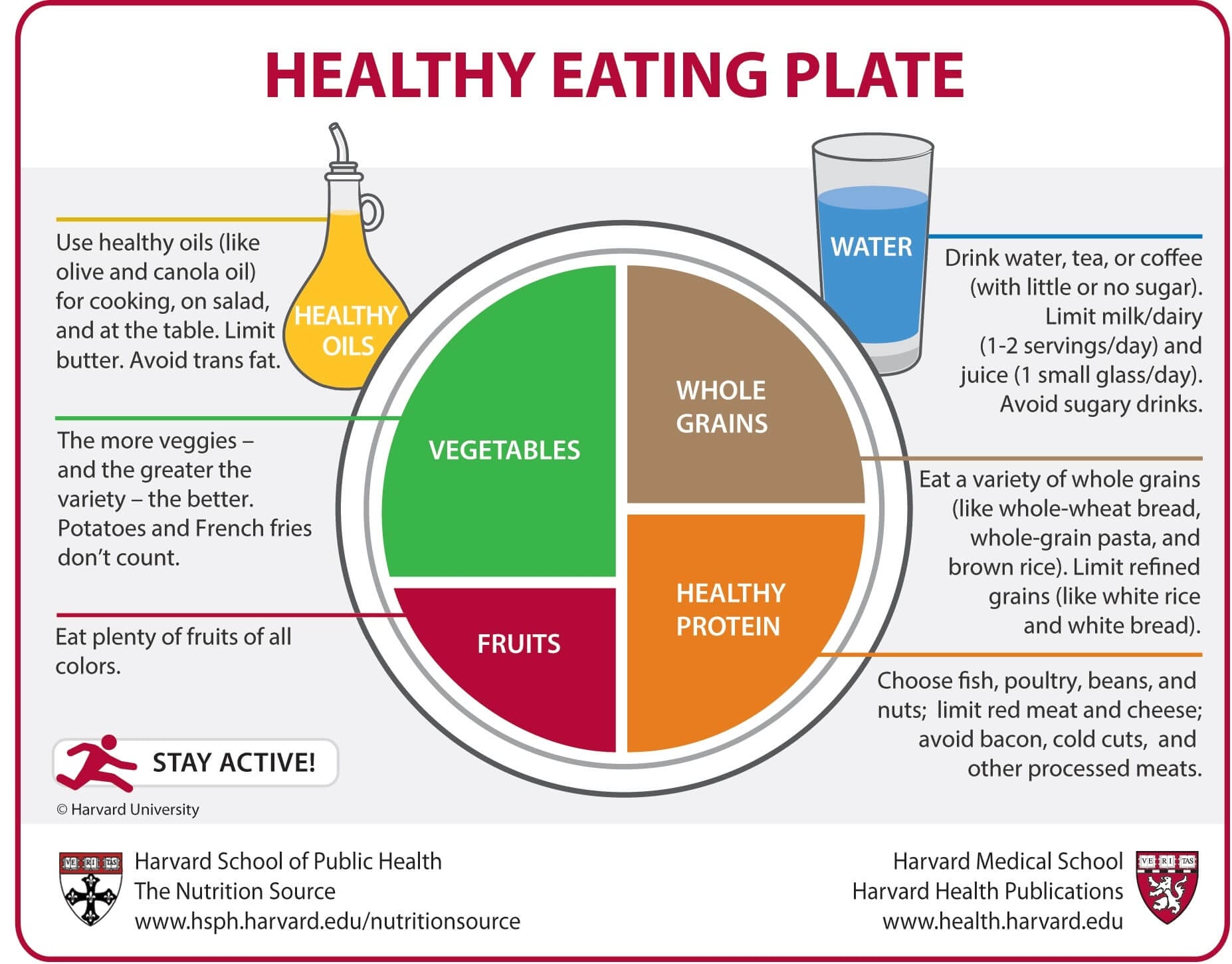
As a general rule, counting the number of calories you have with each meal and paying attention to portion sizes is a waste of time for several reasons.
First, without knowing your basal metabolic rate (BMR), you don’t know how many calories you’re burning daily. And without that knowledge, counting how many calories you’re consuming is futile.
Plus, not all calories are created equal. If you consume 100 calories of red meat, your body requires 30 calories to digest the food. In comparison, your body needs only 10 calories to digest 100 calories from a slice of wheat toast.
Additionally, both protein and fat have uses other than energy. They’re also used for building muscle tissue, cell membranes and other tissue. That further reduces the amount of energy we can get from those nutrients.
That’s another reason why counting calories is meaningless — especially if you don’t take the quality of food into account.
Instead of counting calories, I recommend focusing on improving your insulin and leptin sensitivity so you know when you’ve eaten enough to fulfill your body’s energy and micronutrient needs.
Food cravings are a critical factor in any weight loss plan because they can quickly derail any weight management efforts.
Most people don’t know that the bacteria in your gut (via the gut-brain axis) play a major role in your food cravings. If you frequently crave sweets or other junk food, I recommend a full gut reset by going on a temporary carnivore diet that consists only of meat, organs and eggs.
By not feeding your carb-craving gut bacteria what they want (sugars and starches), they’ll eventually die off and make room for other types of bacteria that thrive on protein and fat.
I’ve also had success getting rid of food cravings with intermittent fasting (or meal skipping) because “bad” bacteria start dying off if they’re without food for as little as 12-14 hours.
I recommend working out on an empty stomach and consuming only protein and fat after a workout — no carbs. This is because you improve your insulin sensitivity by forcing your body to tap into liver and muscle glycogen stores to fuel your workout. You can double down on that benefit by avoiding carbs right after an activity.
For reference, I usually wait several hours before consuming carbs after a workout.
Check out my tips on what to drink before, during and after a workout, and this guest post from Dr. Ben Bikman that talks about the best foods to eat after a workout.
Most plant foods, including veggies, grains, nuts, seeds and legumes, contain natural defense chemicals that are detrimental to your health and wellness. You can read more about that in my article comparing the health benefits of plants vs. meat. In a nutshell (pun intended), I recommend avoiding most plant foods, and especially whole grains.
Why You’re Not Losing Weight: Closing Thoughts
Most people have no trouble gaining weight, but struggle with reducing their body weight once they realize that being overweight or obese comes with serious health issues and an increased risk of developing more server ailments in the future.
Unfortunately, the internet is full of misleading and just plain wrong dietary advice on how to lose weight, such as counting your calorie intake. I hope that this article can help you identify some of the reasons why you might not be losing weight despite your best efforts.

Michael Kummer is a healthy living enthusiast and CrossFit athlete whose goal is to help people achieve optimal health by bridging the gap between ancestral living and the demands of modern society.
Medical Disclaimer
The information shared on this blog is for educational purposes only, is not a substitute for the advice of medical doctors or registered dieticians (which we are not) and should not be used to prevent, diagnose, or treat any condition. Consult with a physician before starting a fitness regimen, adding supplements to your diet, or making other changes that may affect your medications, treatment plan or overall health. MichaelKummer.com and its owner MK Media Group, LLC are not liable for how you use and implement the information shared here, which is based on the opinions of the authors formed after engaging in personal use and research. We recommend products, services, or programs and are sometimes compensated for doing so as affiliates. Please read our Terms and Conditions for further information, including our privacy policy.
